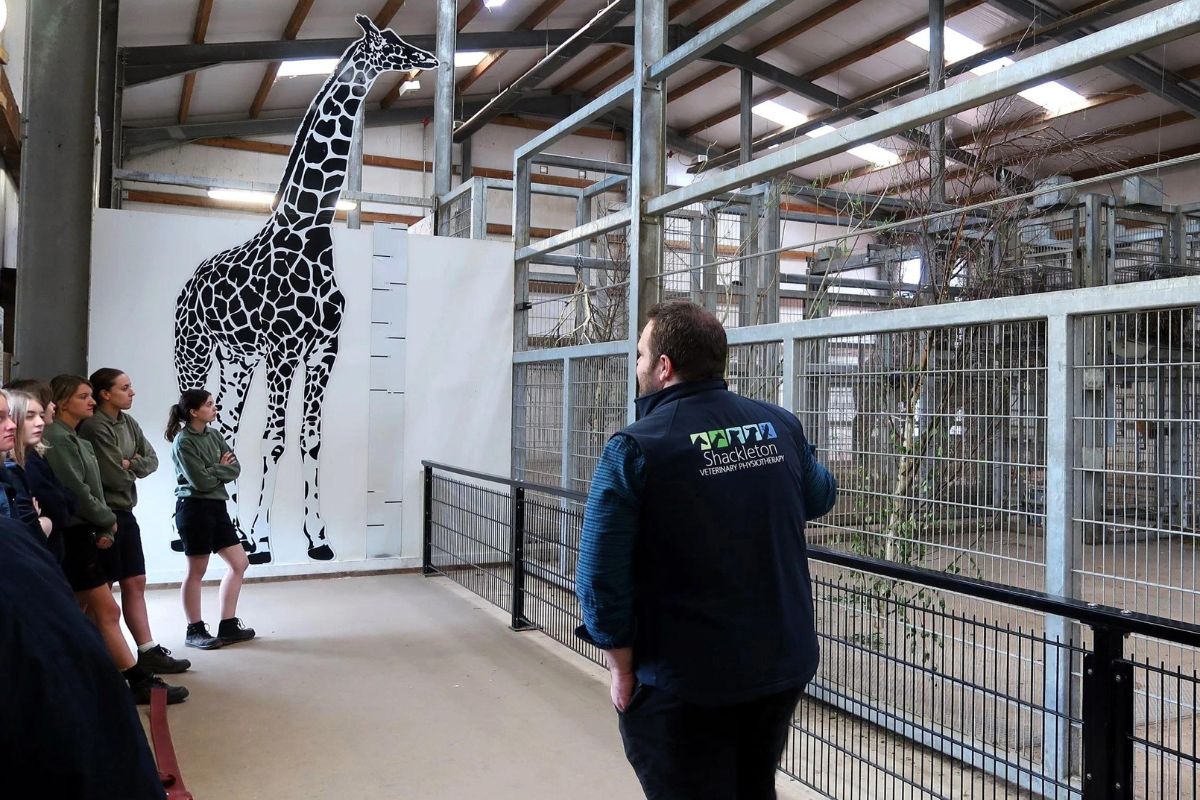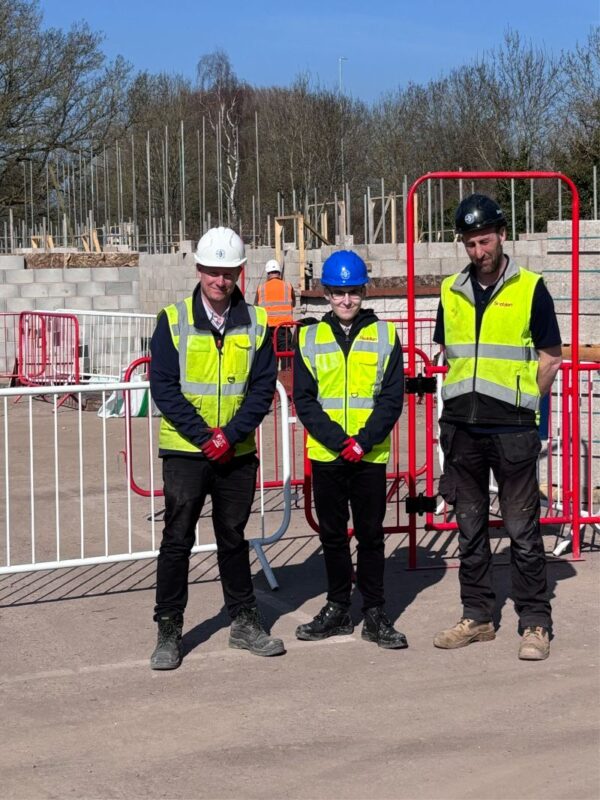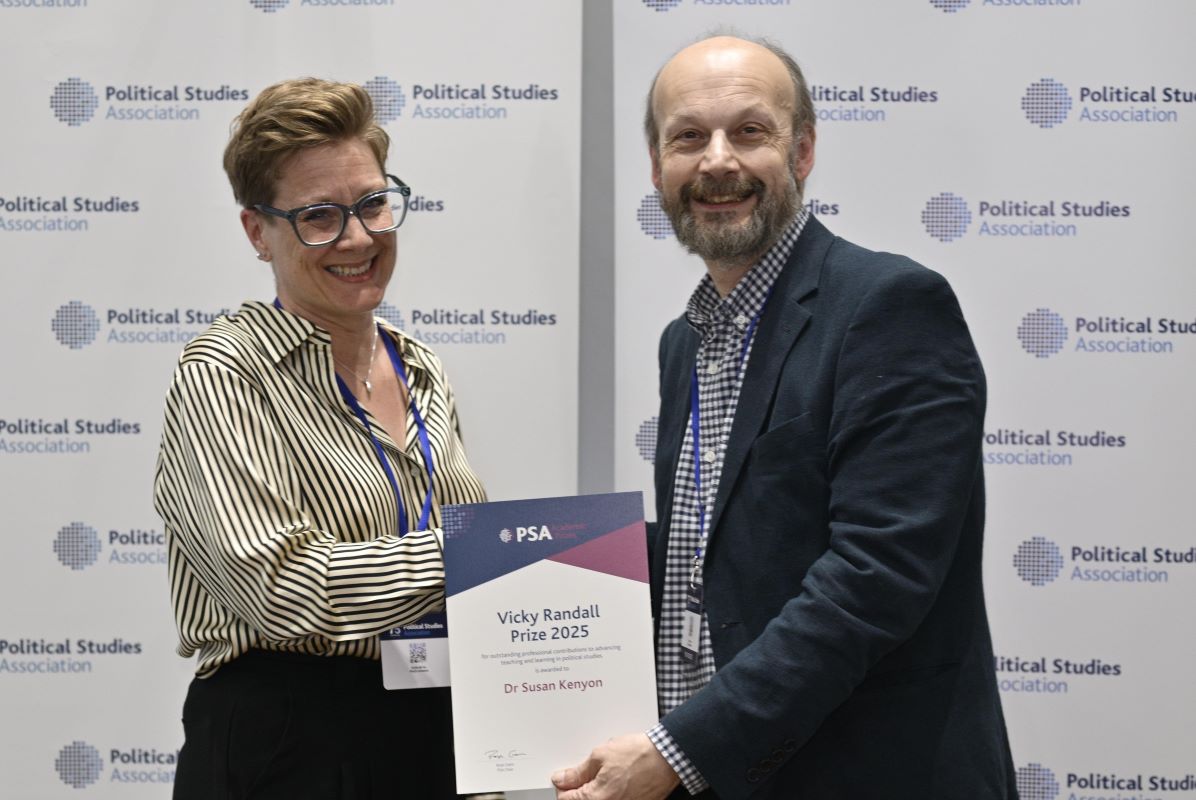Animal therapist holds lameness workshop for zookeepers at popular wildlife park

A LEADING light in animal therapy held a workshop for students and zookeepers at a popular wildlife park.
Matthew Shackleton, a Chester-based veterinary physio, zoo consultant and animal care practitioner at Coleg Cambria Northop, discussed and demonstrated lameness and enrichment devices at Yorkshire Wildlife Park in Branton, near Doncaster.
Joined by Cambria’s Animal Care Coordinator Richard Morrilly, they conducted a morning of theory on physiology and how to spot locomotive illnesses – which restrict quality of life and movement – and solutions on how to prevent them.
Also in attendance were learners from Lincoln College’s Animal Management programmes.
“It was a really good day, we covered a lot and were able to come up with bespoke, practical solutions for the animals while there on-site,” said Matthew, who owns Shackleton Veterinary Physiotherapy in Upton.
“After discussing locomotive illnesses and diseases – focused on four species, including lionesses and giraffes – we began designing enrichment devices that would encourage certain movements or exercises as animals can face a series of issues, notably arthritis.
“Evidence suggests if practices are detrimental to the animal, it can accelerate deterioration, so encouraging other behaviours can keep that at bay.”
He added: “Cambria was a great support in providing tools and resources for us to do this, and all in all it was a very useful and informative day, hopefully the first of many at zoos and wildlife parks nationwide.”
Matthew is one of the UK’s leading animal physios having worked with zoos in Chester, London, Paignton and more over the last decade.
Richard said having him work with Cambria is a USP for its suite of Animal Management and Animal Care courses, and in turn for wildlife settings across the country.
“Matthew is one of just a small group of people in the UK doing this, so it’s a privilege for us to have him on board,” he said.
“Being a part of the day and helping to create devices in the animals’ own environments was fantastic and will play a big role in enriching their day to day lives.
“We’ve had great feedback already and hope to visit other zoos and wildlife parks in the near future, for the educational value it brings and importantly because it has such a positive effect on the health, happiness and wellbeing of the animals.”










